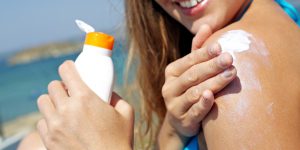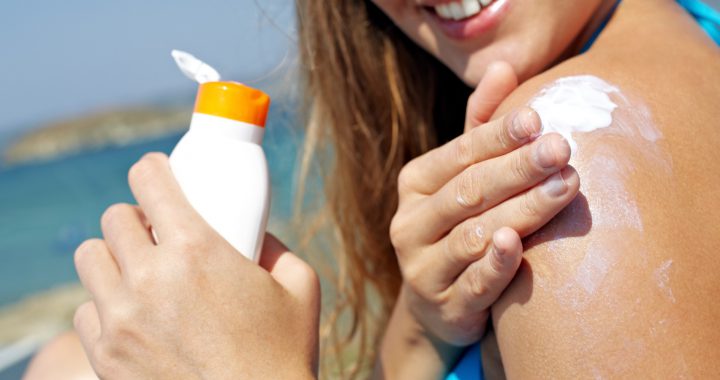 This summer has turned out to be quite a hot one for most areas throughout the country. That summer sun that you think about all year is accompanied by a risk of harmful UV rays. These UV rays can cause short-term and long-term damage to your skin. These risks can include sunburn, signs of aging and increased risk of skin cancer. But yet, even with these risks people still seem to leave the sunscreen home, hoping to get a tan. This is not recommended.
This summer has turned out to be quite a hot one for most areas throughout the country. That summer sun that you think about all year is accompanied by a risk of harmful UV rays. These UV rays can cause short-term and long-term damage to your skin. These risks can include sunburn, signs of aging and increased risk of skin cancer. But yet, even with these risks people still seem to leave the sunscreen home, hoping to get a tan. This is not recommended.
You should apply sunscreen 15 to 30 minutes before sun exposure, then wait for 10 to 20 minutes before getting dressed. It is also recommended to reapply sunscreen at least every two hours, or after every water exposure or sweating even if they are labeled water-resistant. Studies show that SPF 30 sunscreen blocks 97% of UV rays. An increase above SPF 50 only slightly increases the effectiveness. The most important thing is to keep wearing the sunscreen and reapplying.
https://www.health.harvard.edu/blog/sun-protection-appropriate-sunscreen-use-2018062114114




 In honor of the upcoming World Autism Awareness Day on April 2, I wanted to share some information regarding autism spectrum disorders (ASD) and food allergies.
In honor of the upcoming World Autism Awareness Day on April 2, I wanted to share some information regarding autism spectrum disorders (ASD) and food allergies. When and how to introduce peanut-containing foods to reduce allergy risk
When and how to introduce peanut-containing foods to reduce allergy risk


